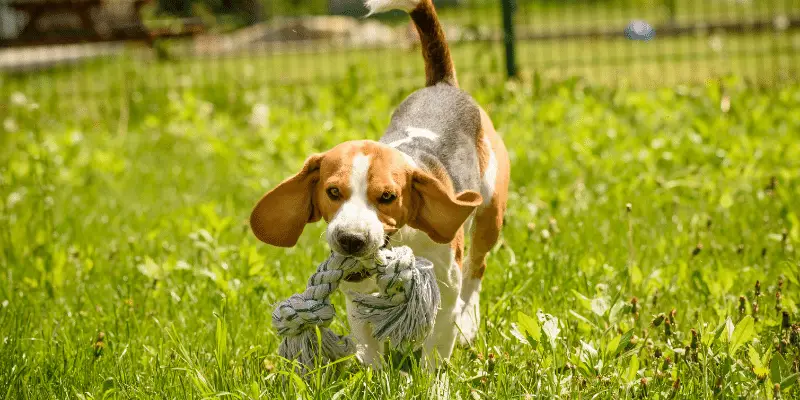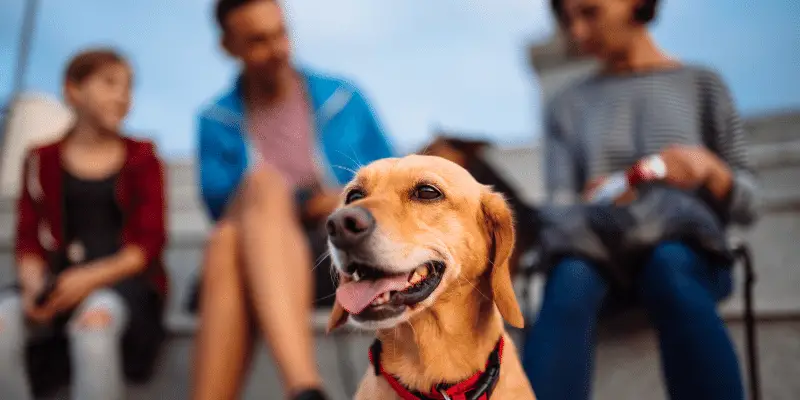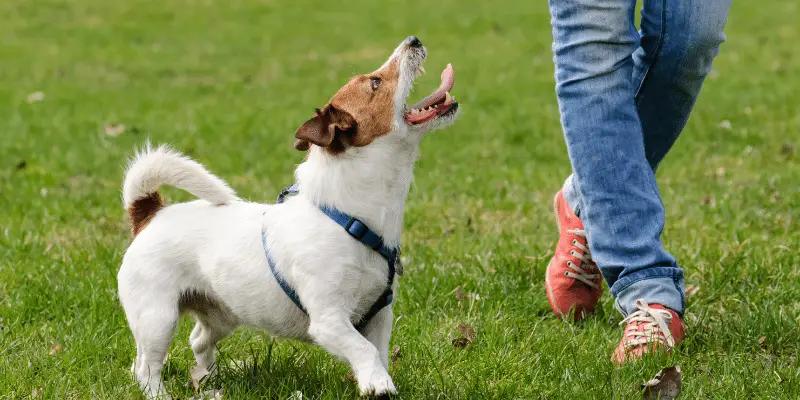
What You Need to Consider Before Getting a Puppy: Key takeaways
- Don’t buy a puppy on a whim. It is never advised to buy a pup on a whim, without doing plenty of research before. Potential owners must determine if they have all of the resources needed.
- Raising a puppy is an incredibly rewarding experience. but it’s not all fun and games. There’s a lot more to it than just cuddles and playtime.
- Understand the financial cost of owning a dog. The cost of owning a dog will differ depending on the individual but you should expect to spend $5,000 to $15,000. Be prepared to spend more if your dog develops any health issues.
- Find your dog through rescue homes or reputable breeders. Rescue homes are a great place to give a dog a second chance at a happy life. If do want a puppy, do your research and know the red flags of an illegitimate breeder.
Dogs are for life
Like all pets, dogs are a long-term commitment and not an animal you should get on a whim. Most dogs live between 10 to 13 years, sometimes even longer, so you need to make sure you can care for them for their entire lives.
You’ve probably heard the saying “dogs are for life, not just for Christmas” or something similar, and that couldn’t be any more true.

Is a Dog Definitely the Right Pet for Me?
Dogs are incredibly rewarding to own, but they require a lot of work and time, especially as puppies. You’ll have to set time aside for potty and obedience training, in addition to basic care like feeding, walking, and bonding.
While adult dogs are a little less demanding than puppies, they still aren’t exactly low maintenance. If you have a busy schedule or are away for long periods during the week, a dog might not be the right pet for you.
Alternatively, if you own any other pets, think carefully about whether they are compatible with a dog. Small animals like rabbits and guinea pigs, particularly if they live indoors, might get stressed or frightened living with a dog.

Ask the Vet - What do i need to consider before getting a puppy?
"It is never advised to buy a pup on a whim, without doing plenty of research before. Potential owners must determine if they have all of the resources needed. This includes space for the pup as they grow, time to spend training them and providing them with what they need and the finances to pay for things like their veterinary care, pet insurance, boarding and food"
- Dr Linda Simon MVB MRCVS

Should I Get a Dog with My Lifestyle?
Another point to consider before getting a puppy is your lifestyle and whether it’s compatible with owning a dog. If you’re not a morning person and don’t wake up until noon, then a puppy might not be a good fit for you.
Alternatively, if you’re not home very often or work late, you’ll have to make certain that someone else can look after your pooch when you’re not around.
Puppies need frequent meals, potty breaks, and constant attention, so you need to make sure you’re able to provide them just that. If you’ve got your heart set on owning a dog, you might need to make some lifestyle changes so you can ensure they get the best care.
Does the Whole Family Want a Dog?
Dogs can make fantastic pets for families, but each member of the household has to be on board with the idea. Before getting a dog, make sure everyone in your family is on the same page.
Speak to each person in your family to get their thoughts and feelings on the prospect of owning a dog. Everyone needs to be comfortable with having a dog around to avoid any issues or conflict later down the line.

Responsibility of Care
When you bring a dog into your household, you have a duty of care to ensure they live happy and healthy.
Do You Have Time for a Dog?
As we mentioned earlier, dogs take up a hefty amount of time to care for. You need to consider whether your schedule can accommodate one.
Everyone can get behind on chores or leave things to the last minute, but a dog isn’t one of them. Caring for a dog isn’t something you can cut corners on, so even if you’re strapped for time, you should prioritise giving your canine the attention they deserve.
Can You Keep Up with Their Exercise Needs?
While energy levels differ for each breed of dog, every canine, young and old, still requires a walk each day. Even low-energy dogs like Pugs, Bulldogs, and Basset Hounds need at least 30 minutes of daily exercise.
Furthermore, if you live in an apartment or don’t have access to a garden, you’ll need to ensure you give your dog plenty of bathroom breaks throughout the day.
Walks are an essential part of owning a dog as it’s crucial for both their physical and mental wellbeing. Dogs who don’t get enough exercise are prone to many health issues, notably obesity.
Even when it’s cold, wet, and windy, you’ll have to grab a leash and some poo bags. No excuses!
If you don’t think you can commit to daily walks each day or are unable to due to health reasons, a dog might not be for you.

Provide a Suitable and Healthy Diet
Alongside exercise, dogs require a healthy and well-balanced diet to keep them in tip-top condition. Your dog’s nutritional needs will change as they age too, as puppies need a completely different diet than adults and seniors.
It should go without saying that your pooch needs food tailored for canines. Whether you go for dry, wet, or perhaps a raw homemade diet is up to you. Just make sure the ingredients are high-quality without too many fillers like soy, corn, and wheat.
Ideally, commercial dog food for puppies should contain between 22% and 33%. Adults require around 18% to 25%, and seniors need at least 25%.
Training
Puppies are unlikely to be trained from the get-go, especially if they are under 12 weeks old. This is where you come in, as you’ll need to teach them what they can and can’t do.
You’ll need to housebreak your pup as they will still be too young to understand where to use the bathroom. In addition, basic commands such as “sit”, “wait”, leave, etc., should be taught so your puppy doesn’t run riot around the house.
Puppies benefit from socialisation with other people and other dogs as it helps them learn how to act in certain situations. Pups don’t normally have the best social etiquette, so allowing them to meet other (vaccinated) dogs and humans will help them understand appropriate behaviour.
If there’s a behaviour you want to correct, such as chewing on shoes or jumping on the sofa, try to address it while your puppy is young. It can be tricky to eliminate bad habits once they are ingrained.
Training your puppy is important as it influences the type of dog they will become as an adult.

You Must Make Sure the Dog Has Interaction and Alone Time
Providing a dog with the basic necessities simply doesn’t cut it. They need plenty of interaction and socialisation, particularly as puppies. Spending time with your puppy strengthens the bond between you, and most dogs thrive on attention from their owners.
However, like humans, dogs have different personalities. Some canines love nothing more than affection, while others prefer independence. No matter their nature, you need to respect your dog’s space.
If they’re not in the mood for belly rubs and head scratches, don’t force it. Allow them plenty of alone time. Forcing your dog to spend time when they don’t want to will hurt the bond between the both of you, and they may be prompted to lash out.
Protection from Pain, Suffering, Injury, and Disease
As we’ve established, you’ll need to ensure you give your dog a suitable home. But simply giving your pooch food, exercise, and attention isn’t enough.
They need protection from disease and injury, both medically and around the house.
Pet-Proof Your Home
Just like you’d childproof a home before the arrival of a new baby, the same goes for a puppy. Pups are experts at getting into things they’re not supposed to, so you need to make some adjustments to your home to keep them safe.
- Unplug electrical wires and keep them out of reach from your puppy, as well as any belongings like shoes that you don’t want to be chewed.
- Cleaning products, medication, small items, etc., should be moved to an area your puppy can’t access such as a high cabinet.
- If you have any houseplants, check whether they are poisonous to dogs.
- Small holes or crevices that your puppy could squeeze into both indoors and outdoors should be blocked off.
- Don’t let your puppy on grass that has been treated with fertilizer, weedkiller, or other chemicals.
- Refrain from using any slug/snail pellets or products intended to eliminate insects around your puppy.
- Keep grass trimmed as ticks commonly hide in long grasses.
- Be cautious of the weather. Provide your puppy with plenty of water if they are outside in the sun.
- Supervise your puppy at all times to make sure they don’t get into mischief.

Vets
The upfront cost of owning a puppy is pretty high, but there are also long-term costs to consider. One of the biggest expenses is vet bills. Even the healthiest dog can become unwell, so you need to ensure you’re prepared financially.
If you’re concerned about vet costs, it might be worth considering taking out pet insurance. This will help you cover the funds needed for any veterinary care your dog requires. Additionally, it can be useful if your puppy is prone to any breed-related health issues.
It’s also important to note that puppies need two rounds of vaccinations to protect them from nasty illnesses like parvovirus and distemper. They’ll need booster ones each year to maintain immunity too.
What’s the Cost of Owning a Dog?
Dogs certainly aren’t the cheapest pet to own, and their expenses only increase as they age. Let’s take a look at the average cost of owning a dog so you know what to expect.
Lifetime Costs
While the cost of owning a dog will differ slightly for each individual, you should expect to spend between £4,500 and £13,000 on your pooch in their lifetime.
If your dog develops any health issues, be prepared to spend even more than this.
Pet Healthcare
Although optional, pet insurance is worth having for your dog to help you cover the funds for any unexpected trips to the vet. On average, pet insurance costs around £279 per year.
This may be higher or lower depending on your dog’s breed, age, gender, and whether they have had any health issues in the past.
What Kind of Dog Breed Is for You?
All dogs have their quirks and charms, but some canines might not be compatible with your lifestyle or home. This might be because they need too much space and exercise, or even because they’re prone to undesirable behaviours like aggression.
Research Dog Breeds
Before getting a dog, it’s a good idea to research breeds to make sure they’re a good match for you and your family. Every breed is different, not just in appearance, so it’s worth taking a look at some breed guides.
Child-Friendly/Temperament
If you have a household with young children, it’s best to choose a breed that’s known for being a family dog. Dogs that have easygoing or laidback temperaments like Golden Retrievers, Goldendoodles, and Labrador Retrievers usually make wonderful pets for families with kids.
Bear in mind that large breeds could knock over children or play a bit too rough, so this is something you need to consider. In contrast, small and toy breeds are more delicate and could be accidentally hurt if picked up or played with incorrectly.
Exercise
Another factor to keep in mind when picking a puppy is exercise needs. Some dogs are extremely active and require hours of stimulation each day, while others prefer short walks and a snooze on the sofa.
Health
All dogs can develop health issues, but some breeds are more prone to medical problems which you need to be aware of. For example, Siberian Huskies are at risk of autoimmune disorders and Bulldogs frequently get respiratory issues.
Knowing what common illnesses affect the breed of puppy you want to get will help you prepare for vet bills, as well as understand what symptoms to look out for.
Where to Find Your New Puppy
Now that you know what to expect when owning a puppy, you’re probably wondering where you can find your new family member.
Rescue Dogs
There are plenty of animal rescues that have an abundance of dogs in need of a loving home. Rescuing a dog or puppy is usually a lot cheaper than purchasing, and the best part is you’ll be giving a pooch that had a rough start in life a second chance.
Breeders
If you’ve got your eyes set on a particular breed of dog, you might want to look up breeders in your local area. Bear in mind that anyone can call themselves a breeder on classified ads.
The Kennel Club has a service to help you find assured breeders in your local area, which is a great place to start for choosing a healthy puppy.
Places to Avoid
Animal rescue centres and assured dog breeders are your best choices for finding a puppy. While there are plenty of sellers on online marketplaces like Gumtree or Preloved advertising dogs for sale, you need to understand the risks of using these platforms.
Here are some signs you need to look out for if you decide to purchase a puppy from a classified ad:
- Not letting you view the puppy’s parents
Good breeders will always let you see both parents when you meet your puppy for the first time. If the mother is not present, then that’s usually a sign that the seller got the puppies from a mill.
- Offering a wide range of breeds
If you notice the seller has a lot of puppy breeds for sale, you might want to rethink buying from them. Reputable breeders usually focus on one breed at a time.
- Puppies or parents are in bad shape
Take a good look at the overall condition of the puppies and parents, especially in person. If they look malnourished or have any visible signs of illness, walk away.
Don’t be tempted to buy the puppy to save it from poor living conditions as you’re likely to end up with a huge vet bill. Even worse, the puppy may not pull through.
- Frequently advertising litters for sale
Female dogs should only have four litters in their lifetime. If you notice a seller is frequently advertising puppies from the same mother, that’s a big red flag.
- Selling puppies younger than 8 weeks old
Puppies need to be at least 8 weeks old before they can leave their mother and siblings. If the seller offers you a puppy younger, don’t go through with the sale.
References
- https://vcahospitals.com/know-your-pet/feeding-growing-puppies#:~:text=The%20recommended%20protein%20range%20for,be%20fed%20to%20growing%20puppies.
- https://www.pdsa.org.uk/taking-care-of-your-pet/looking-after-your-pet/puppies-dogs/the-cost-of-owning-a-dog
- https://www.moneyadviceservice.org.uk/en/articles/do-you-need-pet-insurance
- https://pets.webmd.com/dogs/ss/slideshow-dog-breed-health-problems
- https://www.thekennelclub.org.uk/search/find-an-assured-breeder/









